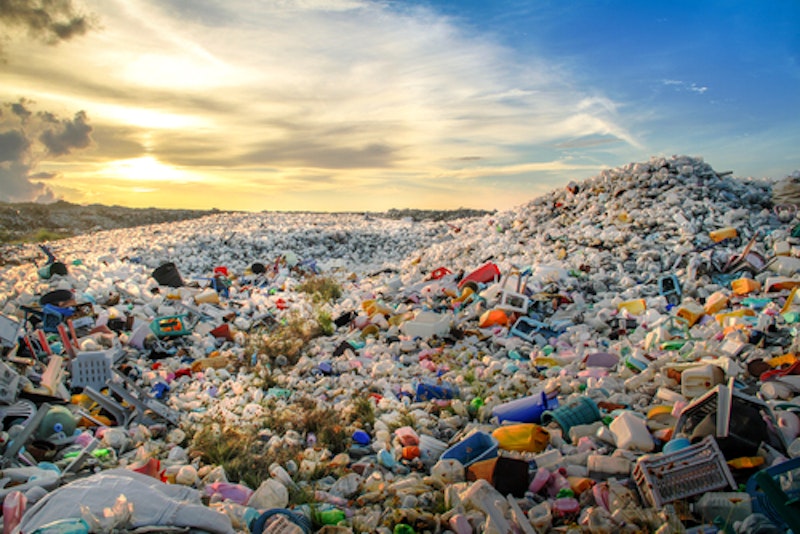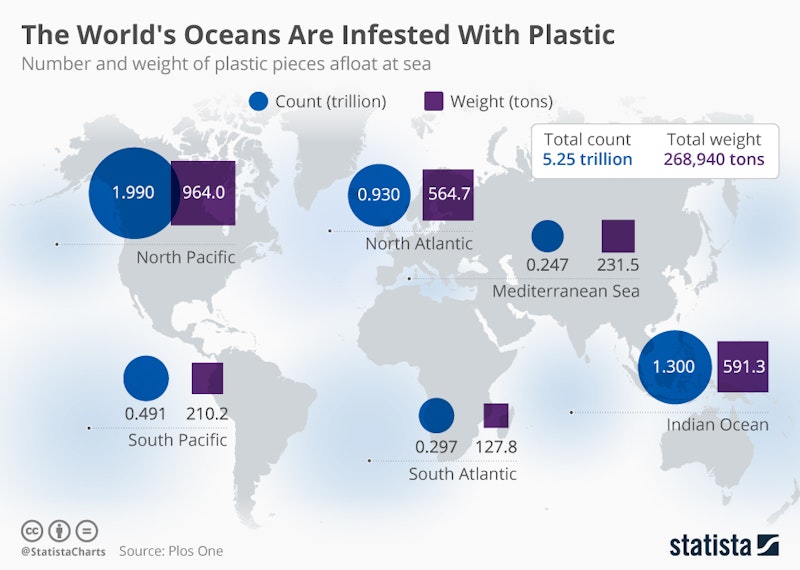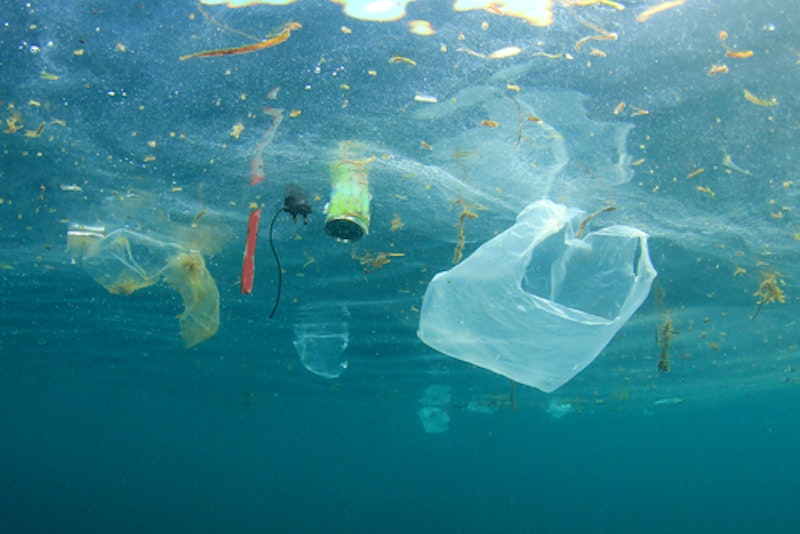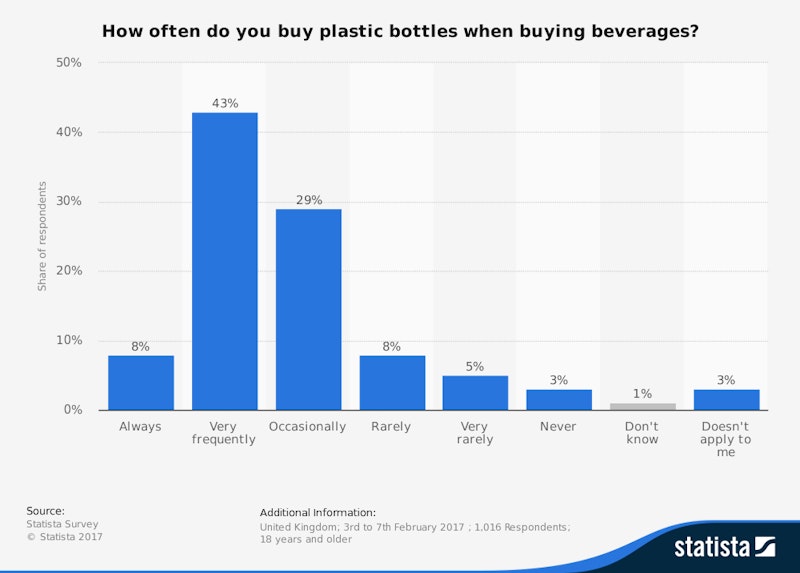Topic updates
Plastic Planet - An Economic and Human Crisis

30th December 2017
This blog brings together articles, videos and other resources on perhaps one of the most pressing environmental crisis of modern times, namely the staggering growth of plastic pollution and the likely economic, environmental and humanitarian consequences.

Scale of the Plastic Waste Crisis
- 95% of plastic packaging material – worth $80-120bn each year – is lost to the economy after a single use
- One refuse truck’s-worth of plastic is dumped into the sea every minute
- Without change, there will be more waste plastic in the sea than fish by 2050
- The amount of plastic produced in a year is roughly the same as the entire weight of humanity
- A million plastic bottles are bought around the world every minute
- British consumers use 13bn plastic bottles a year, but only 7.5bn are recycled
- The average person in the UK will use 150 plastic water bottles every year, in London it is 175 bottles per year
- The UK recycles 57% of the 13 billion plastic bottles used each year but recycling rates have flatlined in recent years
Suggestions for background reading
UN commits to stop ocean plastic waste (BBC news)
UK 'faces build-up of plastic waste' (BBC news)
Earth is becoming plastic planet (BBC news)
Chinese ban on plastic waste imports could see UK pollution rise (Guardian)
Plastics industry under pressure on pollution (The Herald)
Surfers against Sewage - Message in a Bottle Campaign
Microplastic Pollution: Everyone’s problem - but what can be done about it? (Environmental Technology)
Make supermarkets and drinks firms pay for plastic recycling, say MPs (Guardian)
Plastic bottles: Turning Back the Plastic Tide (House of Commons Environmental Audit Committee Report, 2017)
Some behavioural economics reading
Nudge for good: How insights from behavioral economics can improve the world— and manipulate people (World Bank)
Using Nudges to Reduce Waste? The Case of Toronto's Plastic Bag Levy
Nudge to action: Behavioural science for sustainability
The rising tide of plastic waste in the ocean has been described by UN Oceans Chief Lisa Svensson as a ‘planetary crisis’, with 8 – 12 million tonnes of plastic being thrown in our oceans each year.

Negative externalities from plastic waste
- Health costs associated with infections from contaminated litter - the average seafood consumer in the UK will be ingesting about 11,000 plastic particles every year - Reading
- Accidents caused by plastic litter - From sea to plate: how plastic got into our fish
- Environmental damage - fact sheet from Friends of the Earth
- Negative impact on tourism - hotels bury waste plastic in the sand to keep tourists happy
- Impact on wildlife / contamination of the seas
- Contribution to carbon emissions - Landfill and incineration of plastic bottles produces approximately 233,000 tonnes of CO2e emissions a year
Defending the use of plastic - arguments of plastic producers
- Use of plastic reduces the amount of food waste
- Plastic containers are more hygienic - reducing health risks from consuming products
- The industry is investing heavily to produce lighter plastics with an increasing component that can be recycled
- If there was no plastics packaging available and other materials were used, the overall packaging consumption of packaging mass, energy and greenhouse gas (GHG) emissions would increase.
5 barriers to sustainable consumption


Plastic pollution in the news
Causes of growth of plastic production
- Shale gas has reduced the price of gas used in manufacturing plastic
- Rising market demand for disposable drinks and ready meals
- Consumption of bottled water in the UK has doubled in 15 years
- Increased use and production of plastic in developing and emerging countries as per capita incomes rise
Intervention Options to move towards sustainable consumption
Taxation:
- Plastic bag tax on consumers has led to a steep reduction in the number of bags given out in supermarkets / shops
- Tax on producers of plastic bottles and non-recyclable meal trays - giving the industry an incentive to innovate and find alternatives
- Tax could be on a sliding-scale - with a tax on plastic packaging with the hardest to recycle being charged the most
Incentives for consumers:
- Plastic bottle deposit return scheme - Deposit Return Schemes are currently in operation in around 40 countries worldwide as well as 21 US States - Reading
Regulations and Laws:
- Law that plastic bottles have to contain a minimum of 50% recycled plastic
- Regulate that all premises that serve food and drink must offer free drinking water
- Regulate that water utilities must provide and maintain water fountains in major public places


Behavioural nudges and changing decisions
- Requires changing default behaviour, habitual decisions
- Needs changes in choice architecture e.g. taking away platic cups and straws as options
- Changes in social norms can have a powerful impact e.g. reaction to Blue Planet 2 and Sky's Ocean Rescue Campaign
- Social action can change behaviour e.g. community schemes to provide clean drinking water
- Consumer behaviour is affected by the intention-inaction gap - i.e. barriers to people choosing more sustainable options.
Nudging businesses to change their behaviour
- Innovation required to reduce the amount of plastic used - product design, materials used
- Appealing to corporate social responsibility - businesses need to recognise their contribution to global marine plastic pollution
You might also like
Factor Immobility (Revision Presentation)
Teaching PowerPoints

Opinion Polls, Financial Crashes and Groupthink
13th May 2015

Effective nudges to go green!
27th August 2015

Ad Blocking - free markets at their best or worst?
3rd March 2016

Economics Primer - The Market for Lemons
24th July 2016
Heuristics (Behavioural Economics)
Topic Videos

Seven Amazing Optical Illusions
21st February 2017
Daily Email Updates
Subscribe to our daily digest and get the day’s content delivered fresh to your inbox every morning at 7am.
Signup for emails